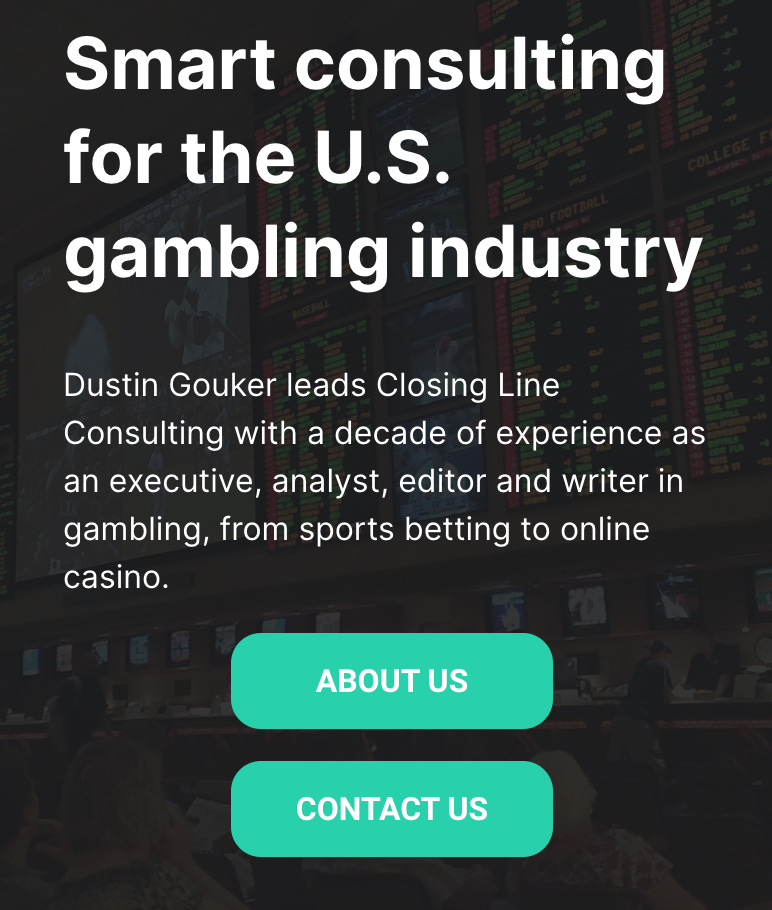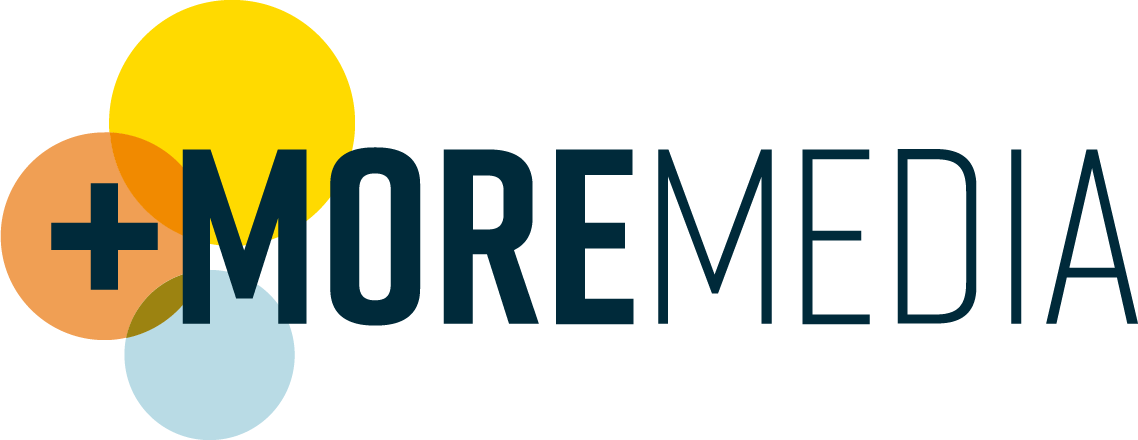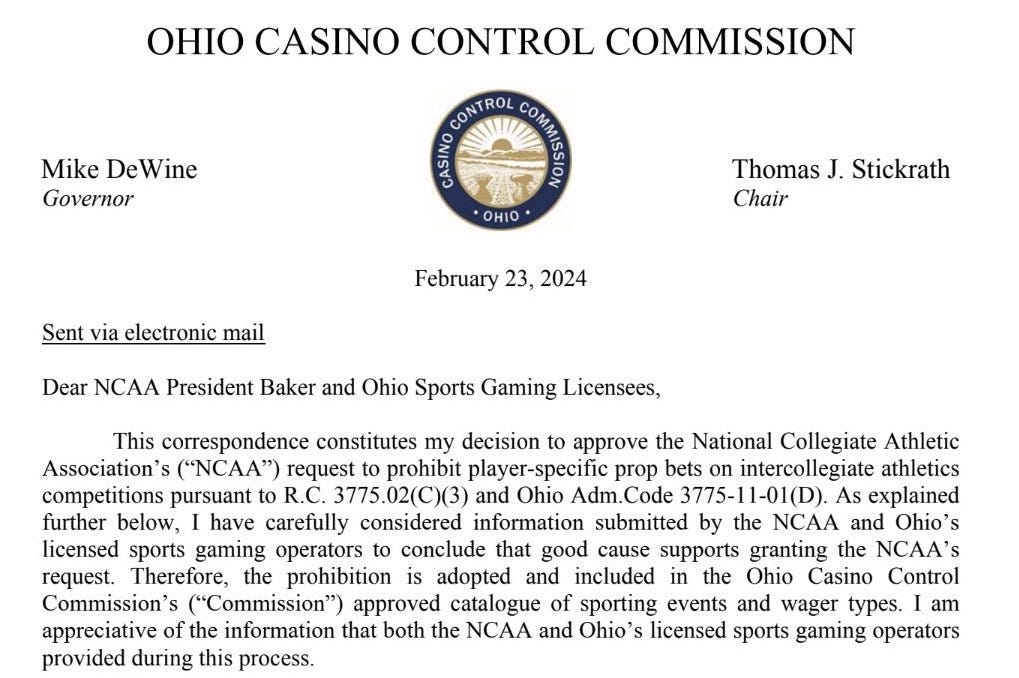The Ohio Casino Control Commission announced this morning it is banning proposition betting on college player performances at regulated sportsbooks. This came at the behest of the NCAA; more here.
The optics behind the move make sense at a high level given some of the news of the past year. But it also doesn’t solve any problems in a meaningful way. Here’s a short list of issues with banning college player props as a policy matter beyond Ohio:
Want to sponsor The Closing Line? Email me or contact scott@andmore.media.
You can still bet on college player props at sportsbooks in a variety of other states. Unless other states are in lock-step or follow Ohio’s lead, you’re not meaningfully changing much for the regulated industry.
You can still bet on college player props at offshore sportsbooks. Part of the reason to legalize sports betting in states around the country was to make the illegal market less appealing for bettors and bring illicit activity into the light. Now a state with regulated sports betting risks sending customers back offshore.
Along the lines of No. 1, you can still do college player prop parlays at a variety of fantasy sports apps like PrizePicks and Sleeper. They are not offered in Ohio, where fantasy vs. the house is not allowed, but it does exist in many states as an unregulated product.
You are now creating a precedent for the NCAA and college betting of all types. The NCAA would likely still encourage full college betting bans, and a move like this helps that momentum. A full college ban would be a poor outcome.
There’s a question of why you would stop with college player props; they are far from the only athletes that are vulnerable to manipulation.
The main thing a college prop ban does is make the regulated industry a worse product. Player props have become a meaningful part of the US sports betting industry in just about every sport.
A better policy decision would be to have standard low limits for how much bettors can wager on college player props. Bettors could still bet on them and be less likely to seek out offshore alternatives. Trying to manipulate player performances for betting in the legal market would then have little point.
I’d rather see a policy like that adopted across the country than copy-catting this kind of ban, or seeing it evolve into full bans on college betting.
Closing Line Consulting
Need help with gambling content, communications/PR, or research and analysis? I’m formally starting a consultancy to help companies in the gaming industry and beyond Reach out if you want to have a conversation. Learn more about CLC here.
The Closing Line is a publication of +More Media.
For sponsorship inquiries, email scott@andmore.media.







Hi Dustin great article as always and a lot of states as seen here have language allowing what the ncaa did in their bills https://www.covers.com/industry/ohio-college-player-prop-betting-ban-other-states-sports-february-2024 I hope this doesn’t lead down a slippery slope but I fear it could in other states. Being in Nevada I Remeber when they the commission allowed in state betting as they told the feds and ncaa to go pound sand in 2001 https://lasvegassun.com/news/2001/jan/25/gaming-control-board-allows-betting-on-nevada-coll/ as the argument was it to stop offshore betting which exists and what sharp players go to as you see the euro model of limiting and banning winners. This boom you are saying I think eventually ends in a bust if you see states destroy the legal market by making it boring compared to offshore plus the possibility of some lunatic going after a athlete physically and or more pieces like 60 minutes that make the industry bad. The simple solution if I’m the ncaa is partner with us integrity for sports wagering integrity and all their services as Matt holt does a great job and what you said low limits on player props that are transparent so the legal market can do its thing and a Nevada style policy across the nation with sports betting regulation yes it does have some flaws but I think it’s a good policy overall.